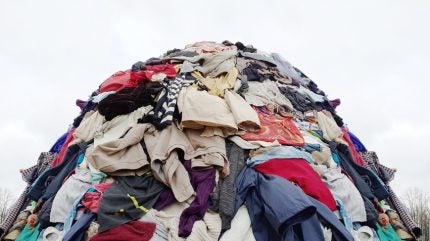
France has passed a new law aimed at reducing the environmental harm caused by ultra-fast fashion — a business model where clothing is made quickly and cheaply, often at the expense of the planet.
The move is part of a wider effort to tackle textile waste and cut down on pollution linked to the fashion industry.

Discover B2B Marketing That Performs
Combine business intelligence and editorial excellence to reach engaged professionals across 36 leading media platforms.
What is ultra-fast fashion and why is it a problem?
Ultra-fast fashion refers to the mass production of low-cost clothes that follow rapidly changing trends. These items are often sold online and delivered quickly to consumers, encouraging people to buy more clothes than they need.
Companies using this model, such as Shein and Temu, release hundreds of new items every day, using materials and methods that are harmful to the environment.
Experts say this type of fashion leads to overproduction and waste. Most of the clothes are worn only a few times or thrown away soon after purchase.
The industry is also a major polluter — the United Nations estimates that fashion accounts for around 10% of global carbon emissions, more than all international flights and shipping combined.

US Tariffs are shifting - will you react or anticipate?
Don’t let policy changes catch you off guard. Stay proactive with real-time data and expert analysis.
By GlobalDataNew rules will require clearer labels and fines for waste
Under the new law, companies must clearly label the environmental impact of each clothing item. This includes details about the amount of water and energy used, and the level of pollution caused during production.
The aim is to help shoppers make more informed decisions.
Brands that sell a large number of low-cost clothes and fail to follow the rules could face fines. Starting in 2025, they may be charged 5 euros per item sold. By 2030, this could rise to 10 euros per item.
The money raised is expected to go towards supporting recycling and repair services in the fashion sector.
France leading the way in Europe on fashion reform
France has already banned the destruction of unsold clothes and is pushing companies to offer more options for repairing or reusing items. This latest law is another step towards making fashion more sustainable.
Other European countries are watching closely, and the European Union has also proposed new rules for making clothes last longer and use less harmful materials. Many hope these combined efforts will slow down the overconsumption linked to fast fashion and reduce the damage done to the planet.
The French government says the new law will be enforced in the coming months, with exact details still to be finalised. Fashion companies selling in France will need to adapt or risk growing penalties in the years ahead.





